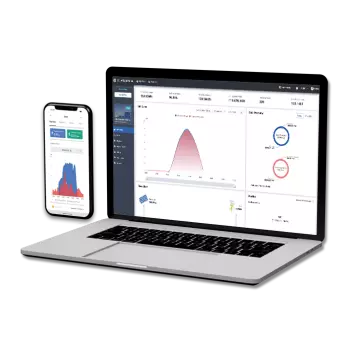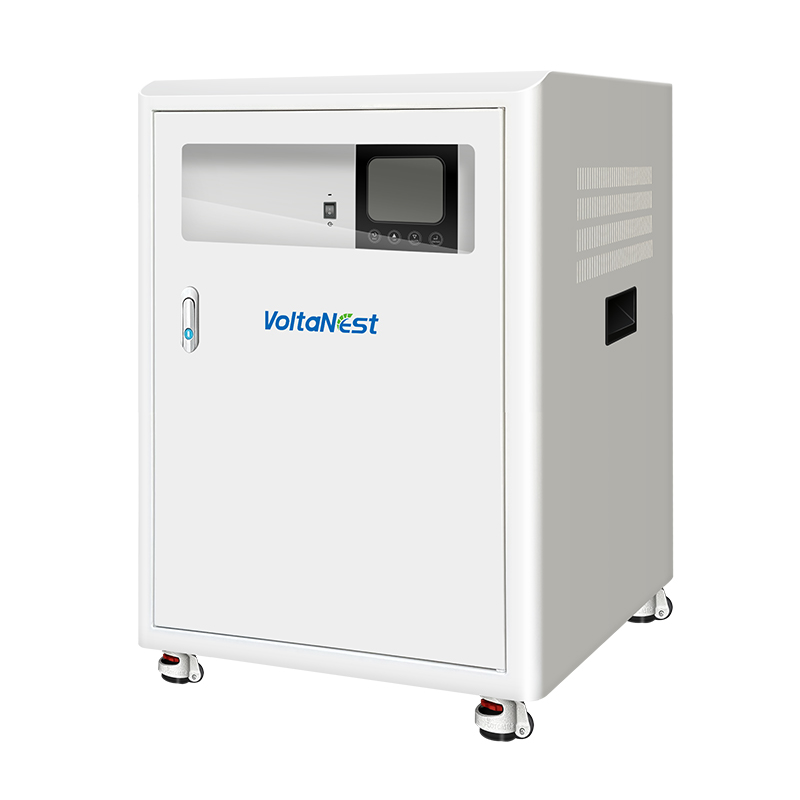โซลูชันการจัดเก็บพลังงาน: อนาคตของพลังงานแสงอาทิตย์และระบบจัดเก็บแบตเตอรี่ภายในบ้าน
Release time: 2025-09-30
Table of Contents
As the world transitions toward renewable energy, solar power and home battery storage systems have become central to creating a more sustainable and cost-effective energy future. The integration of solar energy with energy storage solutions (ESS) is rapidly gaining popularity as homeowners and businesses look for ways to reduce energy costs, gain energy independence, and contribute to environmental sustainability.
This article explores the latest trends in solar power systems and home battery storage, highlighting key benefits, technological advancements, and how this synergy is shaping the future of energy consumption.
What is Energy Storage and Why Does it Matter?
Energy storage systems (ESS) store excess energy for later use, allowing for greater efficiency in energy consumption. In the context of solar power, ESS refers to home battery systems that capture surplus solar energy during the day and release it during the night or at times of peak electricity demand. This technology is essential for overcoming the intermittent nature of solar power, which is only generated when the sun is shining.
With solar + storage systems, homeowners can store solar energy during the day and use it when the grid power is expensive or unavailable, making these systems a smart, sustainable solution for managing energy use.
Current Trends in Solar and Home Battery Storage
1. Rapid Growth of Solar + Home Battery Integration
The adoption of solar power combined with battery storage is growing rapidly worldwide. Reports indicate that the global energy storage market is set to expand in the coming years, driven by increasing demand for renewable energy solutions. Homeowners and businesses are increasingly integrating solar panels with energy storage systems to store excess energy and use it during off-peak times.
The solar and battery systems allow users to make the most of their solar installations, ensuring energy reliability even after the sun sets or during cloudy periods.
2. Significant Cost Savings with Solar + Storage Systems
A major driver of the rise in solar power adoption is the potential for significant cost savings. When combined with battery storage, homeowners can lower their energy bills by using the stored solar energy at night or during times of high electricity demand.
Without energy storage, homeowners can only use solar energy when the sun is shining, often requiring them to purchase additional power from the grid at higher prices. With solar batteries, they can use the stored energy during peak hours, reducing the need for expensive grid electricity.
3. Energy Independence and Grid Reliability
Energy independence is another compelling reason to adopt solar power and battery storage. By storing energy, homeowners reduce their reliance on the electrical grid, which can be particularly beneficial in regions with unreliable grid infrastructure or frequent power outages.
During power outages, a solar + battery system can provide backup power, ensuring that essential appliances continue to run even when the grid is down. This provides energy resilience and peace of mind.
4. Technological Advancements in Energy Storage
Recent technological advancements in battery technology are driving the adoption of solar + storage systems. Lithium-ion batteries are commonly used due to their improved efficiency, affordability, and long lifespan. These batteries provide excellent energy density, which means more energy can be stored in a smaller, more efficient space.
Moreover, solid-state batteries and next-generation battery technologies promise even higher performance with better energy density, faster charging, and longer lifespans. As these technologies evolve, solar and battery systems will become even more affordable and efficient.
5. Government Incentives and Support
Government policies play a crucial role in the widespread adoption of solar energy and home battery storage. Various tax credits, rebates, and subsidies are available for homeowners who install solar panels and battery systems. These financial incentives significantly reduce the upfront cost, making renewable energy solutions more accessible to a broader audience.
For example, in the U.S., the Investment Tax Credit (ITC) offers a federal tax credit for those who install solar energy systems and battery storage. Similar incentives are available in many countries, encouraging the transition to clean energy.
6. Environmental Benefits and Sustainability
Solar power is one of the cleanest energy sources available, with a minimal environmental footprint. By using solar energy combined with battery storage, homeowners contribute to reducing greenhouse gas emissions and lowering their carbon footprint.
Using solar energy to power homes rather than relying on fossil fuels not only helps reduce pollution but also supports the global effort to mitigate climate change. Solar + storage systems are an essential component of the transition toward a more sustainable energy future.
The Future of Solar and Home Battery Storage Systems
The future of solar + energy storage systems is incredibly promising. As battery technology improves and prices continue to decrease, solar and storage systems will become even more affordable for homeowners and businesses.
In addition, the integration of smart home systems will enable homeowners to monitor and manage their solar energy usage more effectively. These smart solar systems will allow for real-time tracking of energy production and consumption, helping users optimize their energy storage and reduce electricity costs even further.
Conclusion
Energy storage solutions (ESS) are transforming how we produce, store, and consume energy. Solar energy combined with home battery storage systems offers homeowners numerous benefits, including cost savings, energy independence, and environmental sustainability. With continued advancements in battery technology and government support, the widespread adoption of solar + storage systems will play a crucial role in creating a more sustainable and resilient energy future.
As the demand for renewable energy grows, investing in solar power and home battery storage systems will become an increasingly smart choice for homeowners and businesses looking to reduce energy costs and contribute to a cleaner planet. The future of energy is renewable, and solar energy combined with energy storage is at the forefront of this transformation.






